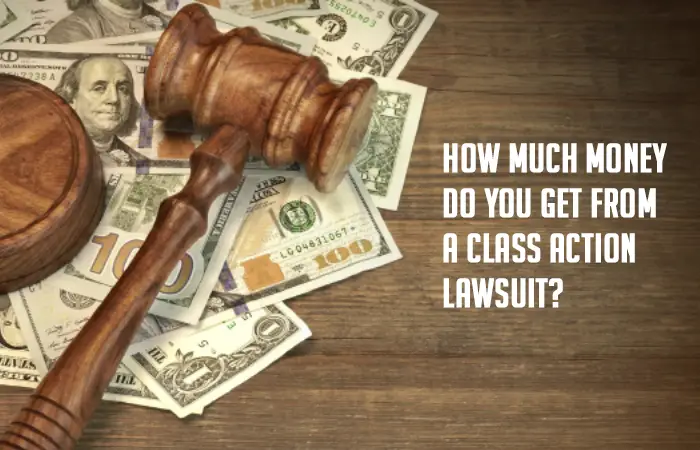A class-action lawsuit refers to civil litigation brought about by multiple people against big corporations. It is effective when a particular cause impacts several people who demand damage relief. You can take the example of a business trying to profit from people under pretense. This causes grievances due to loss, injuries, or psychological distress among the class of people thus creating the requirement for a class action lawsuit. They stand a higher chance of winning the case by banking on their strength in numbers compared to the outcome had they pursued the litigation separately. The rules about class actions vary widely among states and courts, however, some common terms apply to the lawsuits, especially, the payment terms.
Once the presiding judge reviews the settlement offers and determines that the compensation is both fair and adequate, the settlement money is divided. The lead plaintiff is the first person to receive their share of the percentage courtesy of their participation. The lawyers also are eligible to receive a percentage of the fund for their legal fees and related costs since they work on a contingency basis. The court usually restricts the lawyer’s payment to a reasonable amount for ensuring fairness in fund distribution. Ultimately the remaining settlement fund is divided among the class members. Contrary to popular belief, the class action settlements aren’t divided evenly among class members. The lead plaintiff claims the highest portion as they usually suffer the worst injuries or have the highest damages.
The money received from a class-action lawsuit depends to a large extent on the number of class members involved in the same. There must be at least five plaintiffs to receive this award. In the case of more class members, the settlement is multiplied by five. Sometimes, multiple people are involved in the lawsuit and the court must calculate the damages that each defendant should pay. However, the damages will be covered by liability insurance coverage if there are multiple defendants. Once the settlement is reached, the defendant and the plaintiff will have to submit written agreements regarding the splitting of money between them. This agreement can include things like how much money will go to each party, who gets the settlement, or what damages the plaintiff is willing to accept. There is also a chance that the case might be settled out of court if no settlement agreement is reached before going to trial.
How is a class action lawsuit paid?
You will receive your portion of the court or settlement award if the class action lawsuit is successful. Plaintiffs can get either a structured settlement or a lump-sum payment. In the case of smaller payouts, the fund is dispersed as a single payment.
Is the settlement amount taxed?
Proceeds from the class action lawsuits are treated similarly to that of any other lawsuit settlement. However, the court awards or settlements for sickness and injury are non-taxable provided the claimant doesn’t deduct medical expenses on their tax returns.
How much money do the plaintiffs receive in a class action lawsuit?
Class action lawsuits are usually filed against high-profile defendants against whom multiple plaintiffs submit claims of injury. Though the lawsuits are settled for millions of dollars, the plaintiff’s payout will be determined by an array of factors including the number of lead plaintiffs involved, the total number of class members participating in the lawsuit, and the number of injured plaintiffs. Class members may receive less than $10 if they participate in a class action lawsuit but don’t have any evidence supporting the claim like receipts for a dangerous product, or injuries.
How to ensure fair compensation in a class action lawsuit?
A fairness hearing is held by the court in a class action lawsuit before the case can be closed. This is done to ensure that all class members are on the same page regarding the decision taken thus far. You will have to notify the court regarding your objections at the hearing if you don’t agree to the proposed settlement. According to the laws regulating these lawsuits, the presiding judge will approve the settlement only after being convinced that each plaintiff has received fair treatment.

